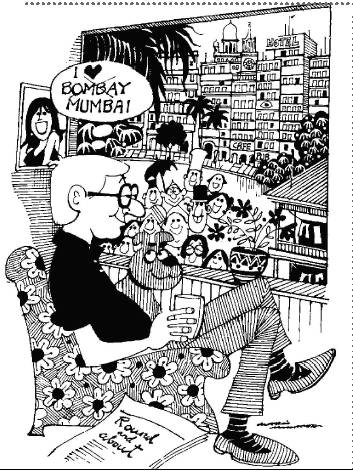Indian Elites: Stuck With Nostalgia; In Love With The Raj

While learning English is important, must we develop bhakti and loyalty to English?
|

he Anglo-Saxon Bloc (Britain, America, Australia, Canada) have been the dominant power for the last 200 years. Behind the rise of the Anglo-Saxon Bloc was India’s traditional gunpowder production system – the world’s largest gunpowder manufactory system. The Anglo-Saxon position has been challenged by France, Germany, Soviet Union – and now China proposes to do the same.
In such a situation, learning English is important. This is something that India has done – but in some parts of the Indian Mind, there is bhakti, even loyalty to the English – and their empty ‘heritage’.
Back from Mumbai’s (which I always prefer to call Bombay) literary carnival, I have trouble with my hearing. There’s Axl Rose’s growling vocals in my left ear, Anita Desai’s gentle, precise whispers in my right.
In my admittedly warped book lover’s memory, Bombay had always been as much a city of books as of film. Friends who were writers themselves – Jerry Pinto, Naresh Fernandes – took me around the city’s bookstores on my first few visits to Bombay.
Bombay used to have a formidable set of bookstores — Strand, ruled by the intelligent taste of the late T N Shanbhag; Lotus Book House (above that petrol pump in Bandra), which had an unmatched selection of arthouse and aantel books; and Smoker’s Corner, a cross between bookstore and lending library.
The last few years were dark ones for Bombay’s bookstores. The 525 bookstores listed by TISS sounds like a healthy number, but it’s misleading — many of those “bookstores” are stationery shops, or textbook specialists who carry either no fiction or limited quantities of fiction. The chain bookstores are depressing places — you expect them to be commercial, but they are dully, boringly commercial, stocking only the most conservative of bestsellers. Lotus closed down in the mid-2000s; Strand and Smoker’s Corner remain, but Strand doesn’t have the range it once did.
The author Ann Patchett started her own large independent bookstore, Parnassus Books, in Nashville some years ago. She built it to recreate the stores that she missed, where “the people who worked there remembered who you were and what you read, even if you were 10”. In an essay for The Atlantic, she defined the kind of bookstore she wanted: “…One that valued books and readers above muffins and adorable plastic watering cans, a store that recognised it could not possibly stock every single book that every single person might be looking for, and so stocked the books the staff had read and liked and could recommend.”
Bombay has a bookstore like that — Kitabkhana in Fort runs according to the Patchett Principle. Like her store, it also functions as a community centre, a place where people will bring their children for book readings, and where authors can do their readings in the pleasant, cosy company of books. If you could combine the two and bring Kitabkhana to Mehboob Studios, where the literary carnival is held, you’d have the best of both worlds.
Related Articles
- Colonial cooking (thehindu.com)
- Anglo-Saxon hall found in Kent is ‘tip of the iceberg’ (telegraph.co.uk)
- India Ink: Balasaheb K. Thackeray, a Look Back (india.blogs.nytimes.com)
-
December 15, 2012 at 10:33 am
-
December 19, 2012 at 8:19 pmIndia Life. Leaving Bombay, a book by Michael Snell. Yareah magazine | Yareah Magazine. Arts and writing





 Exciting new series. From 1 Mar, 2010.
Exciting new series. From 1 Mar, 2010.